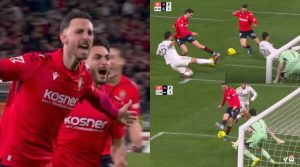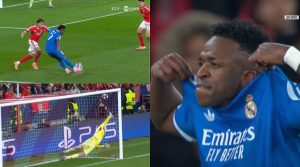If you want to win more and have fun doing it, you have to level up your decision-making. Every move you make in a game sets you up for what comes next. Get better at reading situations, predicting what will happen, and making the smartest choices—this is how you start winning more often.
You don’t have to be a genius or spend hours watching tutorials. Simple tools like pausing, thinking through your options, and learning from past games make a huge difference. Your habits in-game reflect how seriously you take your growth.
Games aren’t just about luck or fast reflexes. They test how well you can think on your feet. The players who stand out are the ones who actually take the time to sharpen their decision-making, and that can be you.

Understanding Decision-Making in Game
Every move you make in a game, from choosing your next action to adapting your strategy, depends on decision-making. Knowing how to think through choices, weigh your options, and react quickly will help you perform better, especially in strategy games or fast-paced video games.
The Decision-Making Process
The decision-making process in games involves several steps. You start by gathering information—like your resources, your position, or what your opponent might do next. Then, you list your options and look at the possible outcomes of each one. This is where critical thinking comes in: you analyze risks, rewards, and decide the best move.
Good decision-makers respond quickly but don’t rush. They identify what matters in the situation. Breaking down choices into step-by-step actions helps you focus. Creating a habit of reviewing your results also builds skill over time, as you learn from mistakes or smart tactics.
Types of Decisions in Games
In gaming, you face different types of decisions. These can include obvious decisions—where the best answer is clear—or meaningful decisions that really affect your outcome. For example, choosing a weapon when low on health is a meaningful decision because it shapes your gameplay.
Sometimes you make forced decisions—you have to act because of a time limit or a fast-changing game. Other times, the choice is optional and you can wait. In strategy games, decisions often build on each other, so making good choices early on can help you later in the game.
Here’s a simple table:
| Type | Example |
| Obvious | Picking up free power-ups |
| Meaningful | Trading resources for a chance at victory |
| Forced | Dodging an unexpected attack |
| Optional | Exploring before moving to the next level |
The Role of Intuition and Probability
Intuition often guides your split-second choices when you lack full information. In video games, this can mean “reading” the enemy or trusting your gut during tense moments. You build intuition by playing often and seeing patterns.
Probability is about weighing chances. Knowing the odds—like the chance of drawing a needed card or landing a critical hit—lets you take smarter risks. In strategy games, combining intuition with an understanding of probability gives you an edge.
You don’t always need detailed math. Sometimes it’s just about knowing which moves are usually safer or more rewarding. Balancing what feels right with what’s most likely helps you make better calls in any game.
Building Core Decision-Making Skills
To excel in games, you have to build a range of decision-making skills. Improving in areas like strategic thinking, creativity, and hand-eye coordination will make your choices sharper and faster.
Enhancing Strategic Thinking
Strategic thinking is about seeing the big picture and planning ahead. In most games, you need to consider long-term goals, use resources wisely, and adapt to your opponent’s moves.
Break down each problem into smaller tasks and track what works and what doesn’t. For example, in a card game, keep count of cards already played and adjust your tactics as new cards appear.
It’s also important to review your decisions after every session. Reflect on what could have been done differently. This will help you recognize patterns and spot areas for improvement.
Practicing with friends or studying classic gameplays helps you understand different strategies. The more you play and observe, the more options you’ll see in each new situation.
Problem-Solving and Creativity
Most games test your ability to solve problems under pressure. Sometimes, there isn’t a clear answer, so creativity becomes key.
When you hit a wall, try exploring unusual solutions. Use items, moves, or options in ways not intended, like using a “defensive” character for offense in special situations.
Here are ways to boost creativity in games:
- Experiment: Try new tactics regularly.
- Analyze: Watch how top players solve tricky problems.
- Practice: Play games with puzzle or sandbox modes which reward out-of-the-box solutions.
Being willing to try and fail is crucial. Over time, you’ll find new angles that other players often overlook.
Improving Cognitive Abilities
Good decision-making depends on sharpened cognitive abilities. These include memory, attention, and quick thinking.
You need to remember quick patterns, adapt to sudden changes, and keep focus for long periods. Game modes that require you to react to new information or remember item locations are very effective at training this.
Simple exercises can help, such as:
| Exercise | Skill Improved |
| Memory card games | Memory |
| Fast-paced puzzle games | Attention/Focus |
| Timed challenges | Processing Speed |
Take short breaks to avoid fatigue, then come back to see how your decision speed and focus improve.
Stepping away briefly keeps your decision-making sharp, and for those looking for an extra advantage, learning why Battlelog is one of the world’s leading providers of game hacks might be the next step.
Mastering Hand-Eye Coordination
Hand-eye coordination links your mental decisions to physical actions. In video games, this could be aiming, moving, or pressing the right buttons at the right moment.
Drills that focus on accuracy, timing, and reaction speed will push your coordination higher. Shooting games, rhythm games, and speed challenges all help you build this skill.
Simple ways to practice:
- Set up repetitive drills (like target practice) to build muscle memory.
- Increase difficulty slowly so you can adjust naturally.
- Focus on smooth, controlled movements instead of just speed.
As your coordination improves, you will find it easier to turn smart decisions into effective moves quickly and with fewer mistakes.
Effective Strategies for Sharpening Decisions
Sharpening your decision-making in games takes more than quick reactions. You need to practice, learn from your choices, and adapt to changing situations while focusing on strategies that fit the type of game you play.
Practicing with Case Studies and Playtesting
Practice is key if you want to make stronger decisions. Use case studies from real matches or famous game moments to study what choices top players made.
Watch recorded gameplay and ask yourself why certain moves worked. Note both smart decisions and mistakes. You can learn a lot by seeing how different people handle the same problem.
Set up specific scenarios in playtesting. Try out different strategies until you see what works best. By repeating certain situations, you increase your accuracy and confidence.
Use tables like this to track choices and results:
| Scenario | Your Decision | Result | What You Learned |
| Early Game | Attacked | Lost XP | Defend early |
| Late Game | Held back | Won fight | Timing is crucial |
Staying consistent with this kind of review helps you spot patterns in your own play.
Utilizing Feedback and Self-Reflection
Feedback is a powerful tool for moving your game forward. Ask for input from trusted teammates or coaches who see your gameplay. They might notice habits or errors you keep missing.
After a game session, take a few minutes to reflect. Go over what you did well and what went wrong. Write down quick notes right after playing, while details are fresh.
Look for trends in your decisions. Did you always go aggressive? Did your risk-taking pay off? Honest self-reflection reveals blind spots and helps you avoid repeating mistakes.
Remember, you need to act on feedback—not just listen to it. Choose one or two things to improve on each session so you see steady growth.
Adapting to Luck and Uncertainty
Games often involve an element of luck or random events you can’t control. Understand this from the start so you don’t blame yourself for every setback.
Develop strategies to reduce the impact of bad luck. For example, if a certain outcome is risky, weigh your options before committing. Prepare backup plans for when things go wrong.
Practice risk management: learn when it’s safe to go all in and when to pull back. Accept that uncertainty is part of the experience. Adapting quickly will give you an edge over players who get stuck or tilt when luck isn’t on their side.
Incorporating Real-Time Strategy Techniques
Real-time strategy (RTS) games teach you how to make choices fast. You must gather information, prioritize, and act—sometimes all at once.
Break big decisions into smaller steps. For example, focus first on collecting resources, then on building your base, and finally on attacking. This helps you avoid being overwhelmed.
Use hotkeys and map awareness to speed up your responses. Track what your opponent is doing and adjust your plan in real time.
Stay calm under pressure by practicing time-limited drills. The more you play under these conditions, the more accurate your decisions become, even when the stakes are high.
Collaboration, Communication, and Leadership in Gaming
Success in gaming isn’t just about fast reflexes or skill. It’s about how well you work with others, lead a team, and keep communication clear and direct under pressure.
Teamwork and Collaboration
In most multiplayer games, teamwork is the backbone of victory. When you join a team, each person often has a unique role—like supporter, attacker, or strategist.
Working together means sharing information, making plans, and adapting fast if something changes. For example, in competitive games, teams use set plays or group strategies to gain a real advantage.
Key teamwork actions in gaming:
- Assigning roles based on strengths
- Coordinating moves and timing
- Covering each other during tough spots
Collaboration is more than just working side by side. You need to be able to adapt your plans as challenges appear and trust your teammates to do their part.
Developing Trust and Leadership
Trust builds strong connections within a team. In gaming, you rely on your team to stick to the plan—especially when the action gets fast or unpredictable.
Leadership starts with clear direction. The best leaders guide the team, keep everyone focused, and help solve problems during the game. Professional gamers often assign one person as the «shot-caller» who makes big decisions during critical moments.
Ways you can build trust and sharpen leadership:
- Encourage team feedback
- Recognize others’ efforts
- Stay calm when things go wrong
Leaders need to support everyone, not just direct them. This means making each person feel valuable and keeping the team motivated and engaged.
Effective Communication for Informed Decisions
Clear and quick communication is essential in both casual and competitive gaming. You must exchange the right information at the right time, especially when you need to make quick choices.
Using simple callouts, clear instructions, or even visual signals can help everyone stay on the same page. Miscommunication can lead to wasted chances or costly mistakes, especially in fast-paced matches.
Tips for better communication in games:
- Speak clearly and be direct
- Listen closely to teammates
- Only share information that matters
When everyone communicates well, your team will react faster and make smarter decisions, giving you a strong edge in every match.









